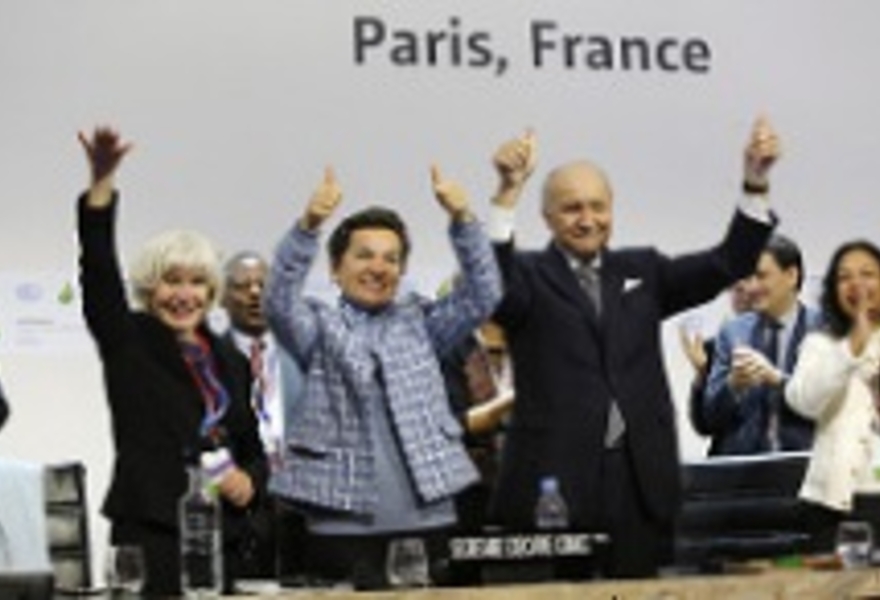Benefits of mitigation leadership 'spill over' to other countries
Germany should use its G20 presidency to set a good example in climate protection. New MCC research suggests that climate policy pioneers can positively affect others.

[Translate to EN:] Foto: francediplomatie / Flickr
22.03.2017
Despite decades of continuous negotiations, the international community has not produced a sustained decrease in greenhouse gas emissions. However, several individual countries and regions have unilaterally pursued mitigation efforts independent of international coordination. A new study led by scientists of the Mercator Research Institute on Global Commons and Climate Change (MCC) now shows that unilateral actions towards climate protection can positively affect other countries. Gregor Schwerhoff and Ulrike Kornek from the MCC published their article “Leadership in climate change mitigation: Consequences and incentives” together with colleagues from the Potsdam Institute for Climate Impact Research (PIK) in the “Journal of Economic Surveys”.
Unilateral mitigation measures are considered controversial among economists. Simple game theory models suggest that such behavior makes other countries “lean back”—economists refer to this as the “free-rider problem”. Therefore, some studies conclude that unilateral climate protection measures have a negative effect on the mitigation efforts in other countries.
However, the new MCC study finds that the free-rider effect is only one of many factors that come into play here, which potentially obscures other positive effects. The authors show that climate policy leaders trigger six additional mechanisms that have beneficial effects on emission reductions in other countries. For example, new climate-friendly technologies are developed in the pioneering countries, which can then “spill over” to other economies. In addition, followers can learn from the pioneers whether a particular policy is working or not.
“We can show that the widespread claim that unilateral mitigation efforts have a negative effect on other countries’ climate policies is rather one-sided and cannot be proven,” says lead author of the study Gregor Schwerhoff. On the contrary, recent empirical studies suggest that positive effects actually occur. “There is a good chance that the overall effect is beneficial to climate change mitigation”, says Schwerhoff. “With regard to the German G20 presidency this year, it would be important for Germany to set a signal in terms climate protection. Since climate policy will be a major topic at the summit, we should not let this opportunity go unused.”
More information:
Schwerhoff, G.; Kornek, U.; Lessmann, K.; Pahle, M. (2017): Leadership in climate change mitigation: Consequences and incentives. Journal of Economic Surveys






